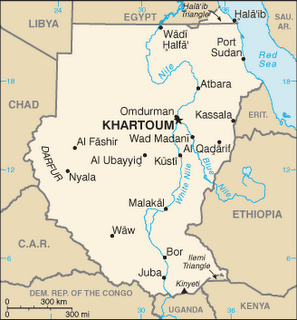New Violence Threatens Humanitarian Response in Darfur, Say Aid Agencies; Ceasefire Needed

Nearly half a million people have less access to humanitarian assistance in Darfur, Sudan, as a result of increasing military activity, banditry and direct violence against aid workers in early December. The insecurity led to 250 humanitarian staff members -- from key locations across Darfur serving some 480,000 people -- being temporarily evacuated. Aid workers are facing unprecedented difficulties at a time when humanitarian needs are rising fast, said a group of leading international aid agencies working in the conflict- stricken region.
The agencies -- Concern Worldwide, Goal, International Rescue Committee (IRC), Norwegian Refugee Council, Oxfam International and World Vision -- say they demand that: All parties must urgently agree -- and maintain -- a ceasefire with immediate effect. They must ensure that aid workers are able to reach people in need.
"If the deterioration is allowed to continue, the impact on civilians could be devastating. With new displacements and attacks, the presence of aid agencies is more important than ever. Yet every day brings one huge blow after another to aid efforts," says Paul Smith-Lomas, regional director for Oxfam.
With access to people in need already at its lowest point since mid-2004, five major areas suffered significant withdrawals of staff in the first week of December alone: El Fasher and Kutum in North Darfur; El Daein and Shearia in South Darfur; and Kulbus in West Darfur. Although hopefully temporary, such evacuations are becoming more and more frequent, restricting the massive humanitarian response in a region where nearly 4 million people are now dependent on aid agencies for essential services such as food, water and healthcare.
Humanitarian agencies in eastern Chad are also finding it increasingly difficult to operate.
"The whole region is increasingly complex and uncertain. While we all remain fully committed to helping the people of Darfur, frequent evacuations of programs are making it incredibly difficult to deliver aid effectively. Blame cannot be laid solely on one particular group. Everyone involved in the conflict must respect humanitarian operations," says Patty Swahn, the International Rescue Committee's regional director.
Since Dec. 1 violence has spread across the region:
In South Darfur:
-- In Shearia, one agency evacuated operations supporting 130,000 people, after staff were assaulted by armed men and three vehicles stolen
-- El Daein has recently seen 20,000 new arrivals fleeing fighting, in addition to 30,000 displaced people already there. Yet the agencies that would help them were forced to evacuate as rebels and government troops scaled up offensives
In North Darfur:
-- Violence in and around El Fasher prevented aid workers from accessing camps that shelter over 100,000 people
-- Agencies have had to evacuate non-essential staff from Kutum, where 140,000 people are being assisted. The surrounding area has seen some of the heaviest fighting and attacks on civilians in recent months
In West Darfur:
-- Around Kulbus, escalating violence along the Chad border forced evacuations of aid workers from an area where tens of thousands of people are being assisted
-- Aid vehicles have been hijacked and staff violently beaten. A commercial truck contracted to deliver humanitarian supplies was attacked and at least 31 civilian passengers shot and burnt to death
Recent months have seen a steady deterioration in agencies' ability to reach people in need. In November, one agency was unable to properly access 19 of its 22 program locations, affecting 175,000 people. In Kalma camp in South Darfur, sheltering 90,000 people, agencies are losing one day's work a week due to rising violence inside the camp.
Since the signing of the Darfur Peace Agreement last May, violence against civilians and aid workers has increased and an estimated 200,000 or more newly displaced people have arrived in Darfur's camps. These camps have been the last source of refuge for many civilians, yet now are increasingly rife with weapons and armed groups. Civilians are suffering doubly -- either caught up directly by the violence, or because aid agencies are prevented from providing essential services.
"We have no blankets, no plastic sheeting for shelters, and no security," says one man recently arrived in Otash camp in South Darfur.
Bookmark http://universeeverything.blogspot.com/ and drop back in sometime.
Technorati tags:
Sudan
Darfur
humanitarian aid
genocide
ceasefire


0 Comments:
Post a Comment
Subscribe to Post Comments [Atom]
<< Home